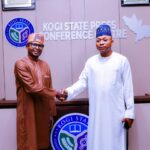The Federal Character Principle, as outlined in Section 14(3) of the Constitution of the Federal Republic of Nigeria (1999), stipulates that the composition of the federal government, including its agencies, must reflect the country’s diversity. The intention behind this principle is to promote national unity and ensure equitable representation of all regions in federal institutions. It is designed to prevent the domination of one or more regions or ethnic groups within the federal government.
Section 14(3) states:
“The composition of the Government of the Federation or any of its agencies and the conduct of its affairs shall be carried out in such a manner as to reflect the federal character of Nigeria and the need to promote national unity, and also to command national loyalty, thereby ensuring that there shall be no predominance of persons from a few States or from a few ethnic or other sectional groups in that Government or in any of its agencies.”
Despite this constitutional mandate, the South-East region (Igbo-Biafra) has faced systemic underrepresentation in both the Senate and the House of Representatives. Furthermore, the region has been consistently excluded from key ministerial, judicial, and security appointments, violating the very essence of the Federal Character Principle. This has perpetuated feelings of alienation and marginalisation among the Igbo people, who perceive this as an intentional effort by the federal government to diminish their political influence.
The underrepresentation in the National Assembly is especially concerning. With only five states allocated to the South-East, compared to six and seven states for other regions, the South-East has fewer legislative seats and is thereby restricted in its ability to influence national policymaking. This structural imbalance extends beyond political representation to the allocation of federal resources, which disproportionately favours regions with more states and political clout.
Additionally, key federal appointments, such as those in the security sector (e.g., the military, police, and intelligence agencies), have seen a consistent exclusion of individuals from the South-East region. This exclusion not only violates the Federal Character Principle but also undermines the notion of equal rights and participation in national governance. The refusal to address these systemic imbalances, despite repeated calls for reform, further justifies the South-East’s demand for self-determination and the possibility of remedial secession.
Uche Mefor is the Convenor of the Igbo-Biafra Nationalists and the Indigenous People of Igbo Nation for Self-Determination



